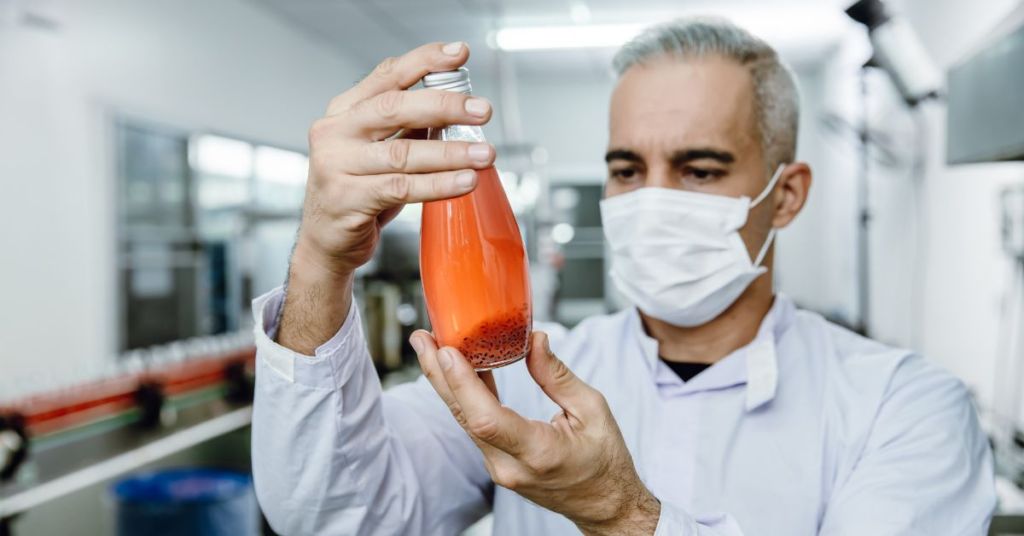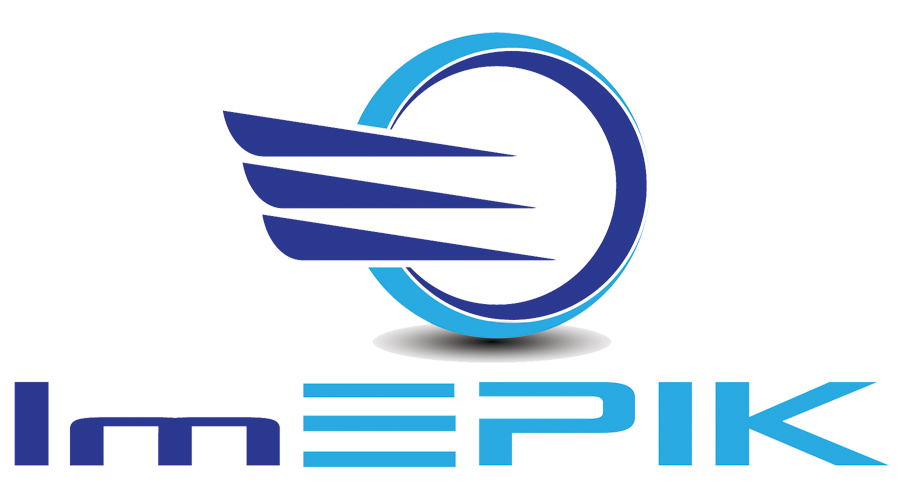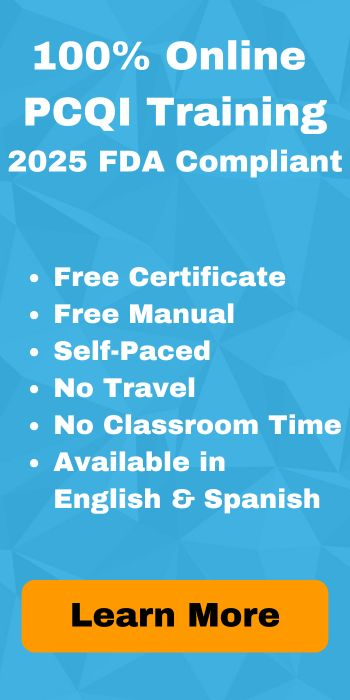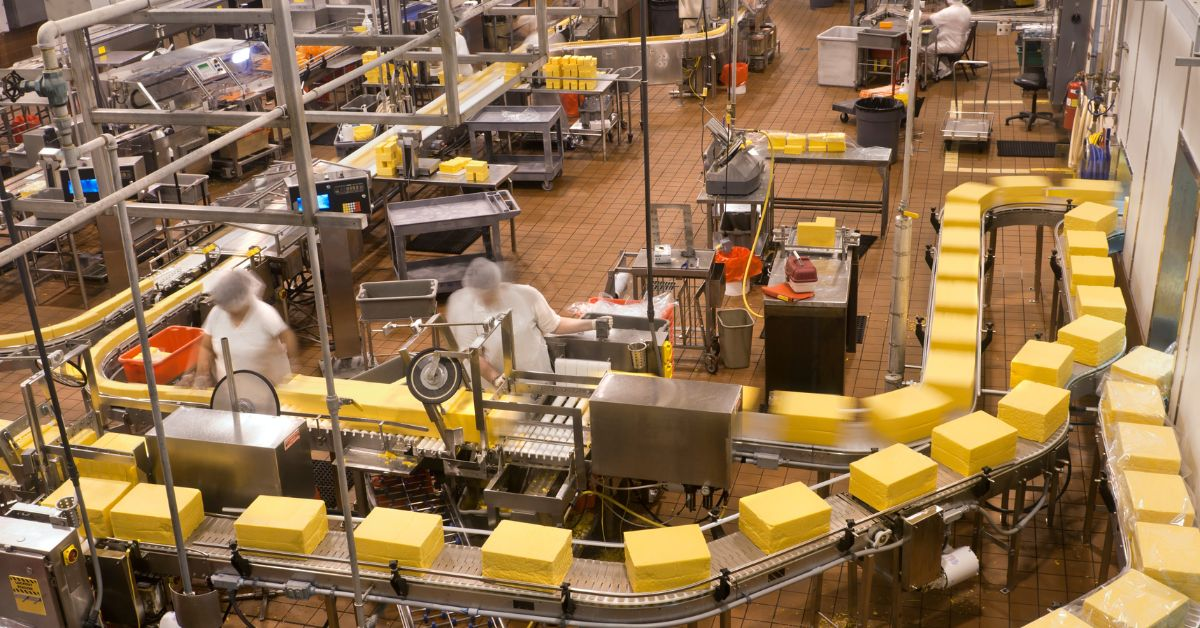
Food safety is a legal requirement, not an option. Every food production facility that falls under the FDA’s Preventive Controls for Human Food (PCHF) Rule must have at least one designated Preventive Controls Qualified Individual (PCQI) in the food safety plan for each facility. For many small and mid-sized food businesses, the exact responsibilities of the PCQI can feel unclear. This creates confusion, increases risks, and leaves gaps in compliance programs.
We offer a solution with a flexible, self-paced PCQI course that clearly defines PCQI responsibilities. Our interactive training helps quality leaders protect their products, meet regulatory standards, and avoid costly errors. Available in English and Spanish, our training meets the FDA’s FSMA requirements and Safe Food for Canadians (SFCR) preventive controls mandate. It is also used for BRCGS certification.
What is the Responsibility of the PCQI?
The PCQI is responsible for ensuring the facility has a written and fully implemented Food Safety Plan. This is not just paperwork—it is the foundation of your company’s food safety program.
Key PCQI responsibilities include:
- Developing and updating the Food Safety Plan based on hazard analysis and risk-based preventive controls.
- Validating preventive controls to ensure they effectively prevent food safety hazards.
- Reviewing monitoring records and verifying daily food safety procedures.
- Conducting reanalysis of the Food Safety Plan at least every three years or whenever there are changes in production.
The PCQI training certificate from ImEPIK® prepares managers and food safety personnel to perform these tasks correctly, giving facilities confidence during inspections and audits.
Why Undefined PCQI Responsibilities Put Facilities at Risk
When PCQI responsibilities are not assigned, several problems can arise:
- Important food safety documents may be incomplete or outdated.
- Hazard analysis for each ingredient may be incomplete.
- Preventive controls may be applied incorrectly or not verified.
- Facilities risk product recalls, FDA warning letters, or import detentions.
Small and mid-sized food manufacturers are particularly vulnerable because they often lack large quality assurance departments. The ImEPIK® PCQI course closes these gaps. It delivers practical, easy-to-understand training that helps food businesses avoid common compliance mistakes.
What is the Difference Between HACCP and PCQI?
One of the most common questions food facilities ask is whether a HACCP certification is enough. The answer is no.
- HACCP focuses on Critical Control Points (CCPs) and is typically required for meat, poultry, seafood, and juice under separate regulations.
- PCQI, under FSMA’s PCHF Rule, applies broadly to human food facilities and goes beyond HACCP to focus on all types of Preventive Controls for all biological, chemical, and physical hazards.
Even if your team is HACCP certified, you still need a PCQI with a training certificate or self-attested competence to meet FSMA’s Human Food Rule requirements. ImEPIK® covers both HACCP basics and Preventive Controls in a way that highlights how they work together.
What is the Difference Between a Food Safety Inspection and a Food Safety Audit?
Many food companies confuse inspections and audits, but the PCQI must be prepared for both.
- A Food Safety Inspection is performed by regulatory authorities, such as the FDA or state inspectors, to ensure compliance with food safety laws.
- A Food Safety Audit is conducted internally or by third parties (such as a customer or certification body) to review food safety practices and documentation.
A trained PCQI plays a crucial role in both processes by ensuring that preventive controls are applied, verified, and adequately documented. ImEPIK®’s PCQI course prepares your food safety team for both types of reviews, reducing surprises and improving inspection outcomes.
How ImEPIK® PCQI Course Empowers Quality Leaders
ImEPIK® designed its PCQI course to meet the needs of busy food manufacturing professionals:
- 100% Online and Self-Paced: Learn anytime, anywhere—no travel required.
- Interactive Training: Engage with real-world scenarios, case studies, and knowledge checks to enhance your understanding.
- Certificate of Completion Recognized by FDA: Satisfy your PCQI training requirement with confidence.
- Meets International Standards: Our training is available in both English and Spanish, and it also fulfills the requirements of Safe Food for Canadians (SFCR) preventive controls mandate. It is also used for BRCGS certification.
- Our PCQI training certificate equips food safety managers, quality assurance leaders, and company owners with the knowledge to build strong, compliant food safety programs.
Define PCQI Responsibilities with Confidence
Every food production facility needs a clearly defined PCQI to meet regulatory requirements, protect consumers, and maintain a strong business reputation. Undefined PCQI responsibilities create risk, but the proper training solves the problem.
With ImEPIK®’s PCQI course, you get the flexibility of self-paced learning, expert-driven content, and certificate of completion recognized by the FDA. Take the first step toward strengthening your food safety program and ensuring your facility stays compliant.
Visit the PCQI courses page to enroll today and get your PCQI training certificate.







